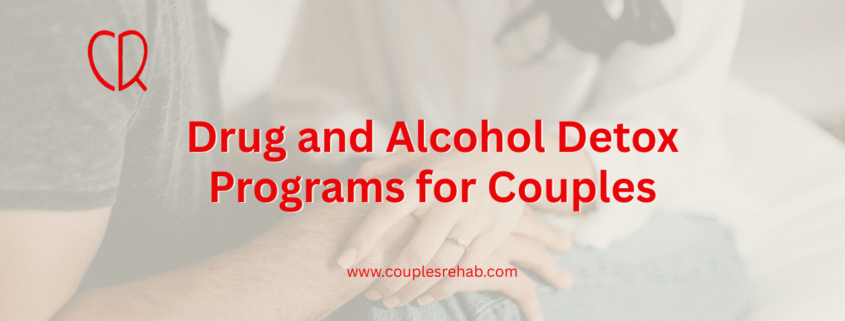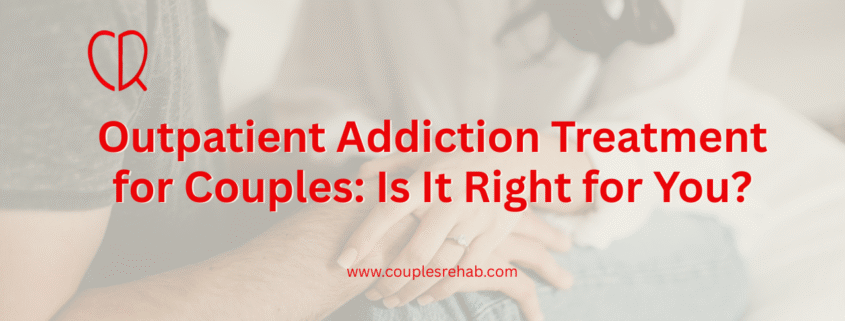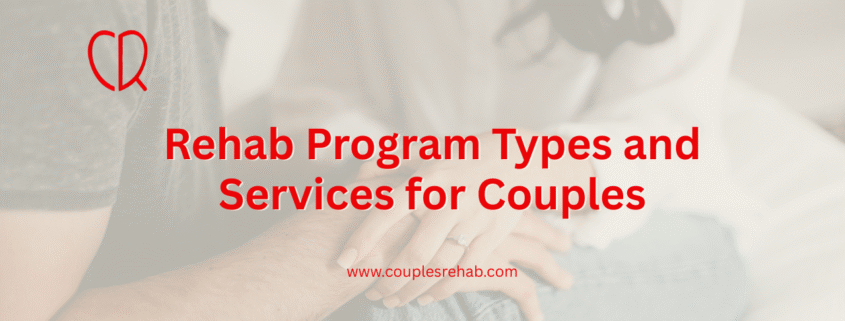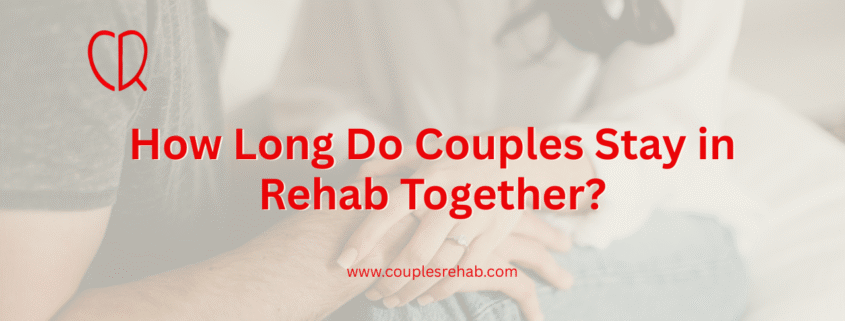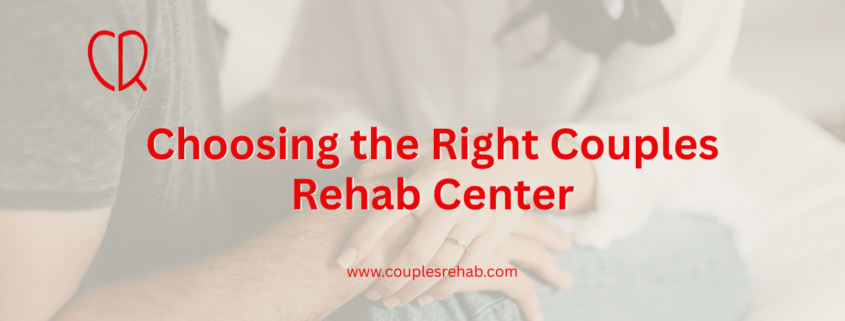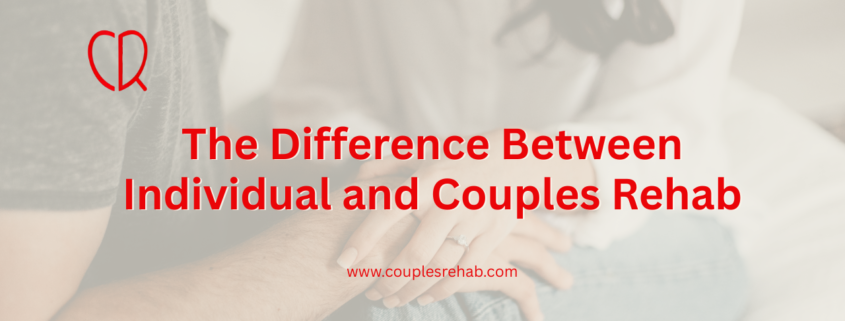When addiction affects both partners in a relationship, the path to recovery can feel overwhelming—especially when you’re worried about whether insurance will cover treatment. You’re not alone in wondering, “Can we afford couples rehab that accepts medicaid or private insurance?” The good news is that many treatment centers do offer couples rehab that accepts medicaid or private insurance, though navigating the system requires some know-how.
Understanding your insurance options for couples rehab isn’t just about saving money—it’s about removing barriers so you and your partner can focus on what matters most: healing together and building a stronger foundation for your relationship’s future.
Understanding Insurance Coverage for Couples Addiction Treatment
Couples rehab differs significantly from individual addiction treatment because it addresses both personal recovery and relationship dynamics simultaneously. While traditional rehab focuses on one person’s journey to sobriety, couples addiction treatment recognizes that relationships can either support recovery or inadvertently enable continued substance use.
Insurance coverage for couples rehab has improved dramatically since the Mental Health Parity and Addiction Equity Act became law. This federal legislation requires insurance companies to provide equal coverage for mental health and substance use disorders compared to medical conditions. However, the way insurance companies interpret “couples treatment” can vary significantly.
Most insurance providers cover addiction treatment services when they’re deemed medically necessary. For couples, this typically means each partner receives individual coverage for their treatment needs, even when they’re participating in the same program. Understanding this distinction is crucial because it affects how treatment centers bill insurance and what out-of-pocket costs you might face.
The key difference between couples therapy for relationship issues and couples addiction treatment is medical necessity. Insurance companies readily cover addiction treatment because substance use disorders are recognized medical conditions requiring professional intervention.
Does Medicaid Cover Couples Rehab Programs?
Medicaid coverage for couples rehab varies significantly from state to state, but the program does provide substantial support for addiction treatment services. Finding couples rehab that accepts medicaid or private insurance requires understanding that while Medicaid doesn’t explicitly cover specialized couples rehab programs, it does cover individual addiction treatment services that couples can access simultaneously.
Each state administers Medicaid differently, leading to variations in what’s covered and how couples can access treatment together. For example, in Arizona, the Arizona Health Care Cost Containment System (AHCCCS) provides comprehensive behavioral health services, including substance use disorder treatment. Though AHCCCS doesn’t specifically list couples rehab as a covered service, eligible partners can access these services concurrently.
Similarly, Florida Medicaid provides coverage for addiction treatment services. While it may not explicitly cover couples rehab, eligible individuals can access individual treatment services at the same time, allowing couples to support each other through recovery while receiving necessary care.
To qualify for Medicaid, couples typically need to meet income requirements based on household size. Pregnancy and disability can provide additional qualifying factors. Women who are pregnant may still be eligible for Medicaid even if they earn more than the standard income limit.
What Medicaid Covers for Couples Substance Abuse Treatment
Medicaid typically covers a comprehensive range of addiction treatment services that couples can utilize:
1. Inpatient detoxification services provide medical supervision during withdrawal, ensuring safety and comfort during the most challenging phase of early recovery. Many couples benefit from going through detox simultaneously, as they can support each other emotionally while receiving professional medical care.
2. Outpatient counseling programs allow couples to receive individual and group therapy while maintaining their daily responsibilities. These programs often include specialized couples counseling sessions that address relationship dynamics affecting recovery.
3. Medication-assisted treatment (MAT) is covered for opioid addiction and other substance use disorders. Both partners can receive appropriate medications to support their recovery, reducing cravings and withdrawal symptoms.
4. Family therapy sessions help couples work through relationship issues that may contribute to substance use. These sessions focus on communication skills, boundary setting, and developing healthy coping mechanisms together.
Medicaid Coverage Limitations for Couples
While Medicaid provides extensive coverage for addiction treatment, there are some limitations couples should understand. Specialized couples programs that focus primarily on relationship dynamics rather than addiction treatment may not be covered. The coverage typically requires a medical diagnosis of substance use disorder for each participating partner.
Prior authorization may be required for certain services, especially inpatient treatment lasting longer than standard timeframes. Working with treatment centers experienced in Medicaid billing can help navigate these requirements efficiently.
Some couples encounter challenges when only one partner qualifies for Medicaid while the other has different insurance or no coverage. Treatment centers often work with mixed-insurance couples to create payment solutions that allow both partners to participate in treatment together.
Private Insurance Options for Couples Drug Rehab
Private insurance plans generally offer more comprehensive coverage for couples rehab than Medicaid, though benefits vary significantly between providers and specific plans. When searching for couples rehab that accepts medicaid or private insurance, you’ll find that most major insurance companies, including Blue Cross Blue Shield, Aetna, Cigna, and UnitedHealth, provide coverage for addiction treatment services when medically necessary.
PPO plans typically offer more flexibility in choosing treatment providers compared to HMO plans, which may require referrals and limit options to specific networks. For couples seeking specialized treatment programs, PPO plans often provide better access to the specific type of care they need.
Employee Assistance Programs (EAPs) can provide additional benefits beyond standard insurance coverage. Many EAPs offer confidential counseling services, referrals to specialized treatment programs, and sometimes direct financial assistance for addiction treatment.
Understanding Your Private Insurance Benefits
Before beginning treatment, you’ll want to verify your coverage by contacting your insurance provider directly. Ask specific questions about couples rehab coverage, including whether both partners can be covered under the same policy and what documentation is required.
Understanding your deductible, copayments, and coinsurance is essential for budgeting treatment costs. Your deductible is the amount you pay before insurance coverage begins, while copayments are fixed amounts you pay for specific services. Coinsurance is the percentage of costs you pay after meeting your deductible.
In-network providers typically offer significant cost savings compared to out-of-network options. Many specialized couples rehab centers work hard to become in-network providers with major insurance companies to make treatment more accessible.
Treatment providers use specific CPT codes when billing insurance for couples therapy sessions. Code 90847 is used for family psychotherapy sessions where the patient is present, which includes couples therapy for addiction treatment.
Medicare Coverage for Couples Addiction Therapy
Medicare Part B covers couples therapy under family counseling and mental health care services. Medicare covers 80 percent of the cost when treatment is provided by qualified behavioral health care providers, including psychiatrists, clinical psychologists, clinical social workers, or nurse specialists.
To qualify for Medicare coverage, treatment must be deemed medically necessary and provided by Medicare-approved providers. Couples receiving Medicare benefits should verify that their chosen treatment center accepts Medicare assignment to avoid unexpected out-of-network charges.
Medicare Advantage plans may offer additional benefits beyond standard Medicare coverage, potentially including enhanced mental health and substance abuse benefits.

Finding Affordable Couples Rehab Insurance Options
Beyond traditional insurance coverage, several options exist for couples seeking affordable addiction treatment. Many people wonder where to find couples rehab that accepts medicaid or private insurance while also offering additional financial assistance. State-funded programs often provide services at reduced costs based on sliding fee scales that consider household income and family size.
The Substance Abuse and Mental Health Services Administration (SAMHSA) offers resources for finding treatment providers that accept various forms of payment, including those that offer sliding scale fees or accept Medicare and Medicaid. SAMHSA’s National Helpline (1-800-662-HELP) provides free, confidential, 24/7 treatment referral services.
Community health centers and Federally Qualified Health Centers (FQHCs) often provide addiction treatment services on a sliding scale basis. These centers are designed to serve underinsured and uninsured populations, making them valuable resources for couples facing financial challenges.
Many treatment centers offer scholarship programs funded by donations, allowing couples to receive treatment regardless of their ability to pay full costs. These programs typically require financial documentation and may have waiting lists, so early application is important.
Questions to Ask Your Insurance Provider
When verifying coverage, ask these essential questions:
“What is my annual deductible for mental health and substance abuse services?” This helps you understand upfront costs before insurance coverage begins.
“What are my copayment amounts for outpatient counseling and inpatient treatment?” Knowing these fixed costs helps with budgeting.
“Do you require prior authorization for addiction treatment services?” Understanding approval requirements prevents delays in starting treatment.
“Can both partners in our relationship receive coverage for addiction treatment?” Some policies may have limitations on covering multiple family members simultaneously.
“What documentation do you need to approve couples rehab coverage?” Having required paperwork ready speeds up the approval process.
How Couples Rehab Centers Work With Insurance
Experienced couples rehab centers maintain relationships with multiple insurance providers to maximize accessibility for couples seeking treatment. These centers typically employ dedicated insurance specialists who verify benefits, obtain necessary authorizations, and work with insurance companies to ensure coverage.
The insurance verification process usually begins with a phone call where treatment center staff gather insurance information and contact providers to verify benefits. This process typically takes 24-48 hours and provides couples with clear information about coverage levels and expected out-of-pocket costs.
Many treatment centers offer financial counseling services to help couples understand their options and create payment plans when insurance doesn’t cover the full cost of treatment. These services can be invaluable for couples facing financial stress while trying to access needed care.
Couples Rehab at Huntington Beach: Insurance Acceptance
At Couples Rehab in Huntington Beach, we provide couples rehab that accepts medicaid or private insurance, working with most major insurance providers to ensure couples can access the treatment they need. Our insurance verification team provides free, confidential benefit checks that give couples clear information about their coverage before beginning treatment.
We accept most PPO insurance plans and work with many HMO networks. Our financial counselors help couples navigate complex insurance requirements and create payment solutions when needed. We also provide assistance with prior authorization requirements and appeals if initial claims are denied.
Our approach recognizes that insurance navigation can be overwhelming when you’re already dealing with addiction challenges. That’s why we handle the complex insurance work so couples can focus on their recovery journey.
Maximizing Your Insurance Benefits for Couples Treatment
Successfully navigating insurance coverage requires strategic planning and attention to detail. Start by gathering all insurance documentation and understanding your specific benefits before contacting treatment providers.
Obtain prior authorization when required by working closely with your treatment center’s insurance team. This proactive approach prevents delays and ensures coverage from the beginning of treatment.
Keep detailed records of all communications with insurance providers, including claim numbers, representative names, and approval codes. This documentation becomes valuable if you need to appeal denied claims or resolve billing disputes.
Work with treatment coordinators who understand insurance requirements and can advocate on your behalf. These professionals often have established relationships with insurance companies and understand how to present treatment requests for maximum approval likelihood.
If your insurance claim is denied, don’t give up. Most insurance companies have appeals processes that allow you to challenge denials with additional documentation or medical justification.
Frequently Asked Questions About Couples Rehab Insurance
Does Medicaid pay for couples to go to rehab together? While Medicaid doesn’t explicitly cover couples programs, it does cover individual addiction treatment services that couples can access simultaneously. Each partner needs to qualify for Medicaid individually, but many treatment centers accommodate couples within their programs.
Can both partners use the same insurance for couples addiction treatment? Yes, if both partners are covered under the same family insurance plan, they can typically both receive addiction treatment benefits. However, each person’s treatment is billed individually even when participating in couples programming.
What’s the difference between individual and couples therapy coverage? Individual therapy for addiction is typically covered when medically necessary. Couples therapy may be covered when it’s part of addiction treatment, but pure relationship counseling without substance abuse components may not be covered.
How much does couples rehab cost with insurance? Costs vary significantly based on insurance type and treatment level. With insurance, couples might pay $1,000-$5,000 out-of-pocket for outpatient treatment or $5,000-$15,000 for inpatient programs, depending on deductibles and coinsurance.
Will my insurance cover detox for both partners? Most insurance plans cover medically necessary detoxification services. If both partners require detox, insurance typically covers both, though each person’s treatment is processed separately.
Do I need a referral for couples rehab with Medicaid? Referral requirements vary by state and specific Medicaid plan. Some require referrals from primary care providers, while others allow direct access to addiction treatment services.
What if only one partner has insurance? Treatment centers often work with mixed-payment situations, offering sliding scale fees or payment plans for the uninsured partner while processing insurance for the covered partner.
Can we stay in the same room during couples rehab with insurance? Room accommodations depend on the specific treatment center’s policies rather than insurance coverage. Many centers offer couples rooms, though this may involve additional costs not covered by insurance.
How long does insurance cover couples addiction treatment? Coverage length varies by insurance type and medical necessity. Most plans cover 30-90 days of intensive treatment, with ongoing outpatient coverage for extended periods when medically justified.
What happens if our insurance claim is denied for couples rehab? You can appeal denied claims by providing additional medical documentation, getting physician recommendations, or working with patient advocates. Many denials are overturned on appeal with proper documentation.
Get Help Verifying Your Insurance Coverage Today
Don’t let insurance confusion delay your path to recovery together. At Couples Rehab in Huntington Beach, our experienced insurance verification team provides free, confidential benefit checks that give you clear answers about your coverage within 24 hours.
We understand that every couple’s situation is unique, which is why we work with most major insurance providers and offer flexible payment solutions when needed. Our financial counselors are standing by to help you understand your options and create a treatment plan that fits your budget.
Your relationship deserves the chance to heal and grow stronger through recovery. Let us handle the insurance complexities while you focus on building the foundation for a healthier future together. Contact Couples Rehab today—your journey to recovery as a couple starts with a single phone call.


